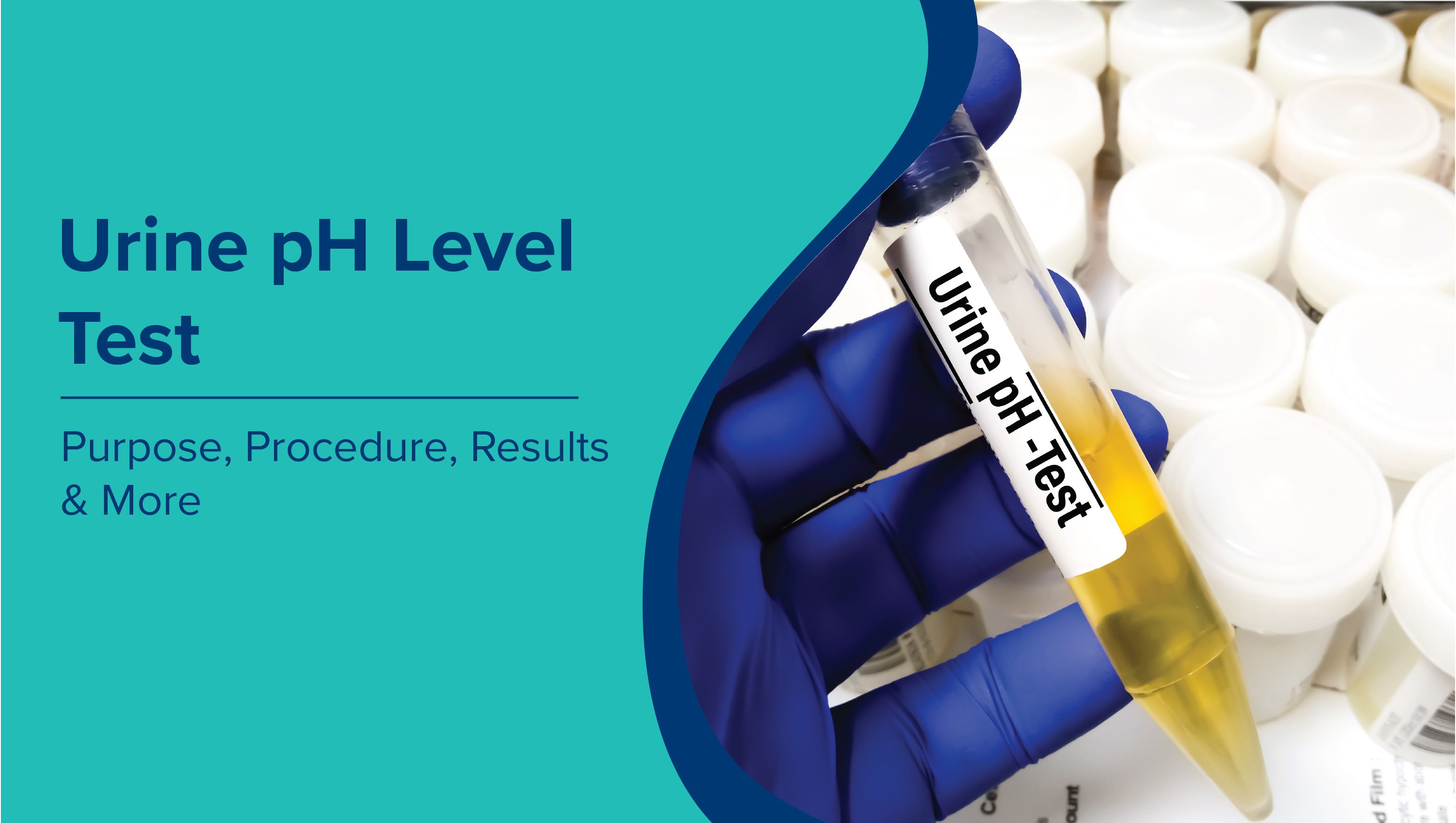Urine might reveal more about your health than you might imagine. Urine pH is one of the important parameters which might be considered during a regular urinalysis. The low-cost test can offer valuable indications of your body acid-base status, water balance, diet, kidney, and the possibility of having kidney stones.
Through this article we will decode all that you should know about the urine pH test, its why, how, what the results mean, and what is considered normal or not. The urine pH can also be altered by lifestyle, diet and diseases and you will also understand when you may need to take swift action.
What Is Urine pH?
The term pH denotes the level of hydrogen ions (H 2 (123300) 92 ) in a solution. It shows the level of acidity or basicity of that solution between 0 and 14:
pH < 7 = Acidic
pH = 7 = Neutral
pH > 7 = Alkaline (Basic)
Urine pH is the measure of the acidity or basicity of your urine when measured in urine. Kidneys have a very vital role as they ensure that the acid base content of your body is maintained according to their properties of regulating the intake of acid or base by releasing it through the urine. Urine pH could, hence, give a quick insight into the internal environment of the body.
Why Is Urine pH Important?
Urine PH is a valuable diagnostic data and provides assistance in assessing:
- Kidney function
- Risk of getting kidney stones
- Incisional hernias (UTIs)
- Acidosis or alkalosis of the metabolic process
- Efficacy of some of the medicines
- Dietary influence on acid-base balance
Kidney stones of some kinds are likely to occur in acidic urine whereas others are likely to take place in alkaline urine.On the same note, some of the causative bacteria of UTIs will survive in particular pH levels.
What Is the Normal Range for pH in Urine?
Healthy people typically have urine with a pH of 4.5 to 8.0, while the precise value might change based on factors like nutrition, hydration, medications, and health issues.
|
pH Value |
Interpretation |
Possible Causes |
|
< 5.0 |
Strongly acidic |
High-protein diet, starvation, diabetic ketoacidosis, UTI |
|
5.0–6.0 |
Moderately acidic |
Normal variation, mild dehydration |
|
6.0–7.0 |
Neutral to slightly acidic |
Balanced diet, normal kidney function |
|
7.0–8.0 |
Slightly to moderately basic |
Vegetarian diet, UTI with urea-splitting organisms, renal issues |
|
> 8.0 |
Strongly alkaline |
Chronic kidney disease, certain infections, medications |
Note: The normal range for pH in urine typically falls between 6.0 and 7.5, but one-time values outside this range are not always a sign of disease. Consistently abnormal results warrant further evaluation.
What Affects Urine pH?
The urine PH is affected by a number of physiological as well as lifestyle factors. By knowing them, you can also make a better judgment of test results:
1. Diet
- High protein diets (e.g., meats, eggs, dairy) and, increased acid PRUNE urine
- Vegetarian or vegan diets (lots of fruits and vegetables) pursued => less acidic urine
- Although citrus fruits are acidic, they act alkalizing to the body.
2. Hydration
- Dehydration causes concentration of urine and it can cause a change in the pH in the acidic direction
- When hydrated people are well, their PH value is neutralized
3. Medications
- Some of the drugs may have effect on pH:
- Acetazolamide, potassium citrate -urine alkalinise
- Methenamine, NH4Cl, urine acidity
4. Medical Conditions
- UTIs: UTIs that are specifically caused by Proteus or Klebsiella can increase pH
- Diabetes: May cause ketoacidosis and acidic urine
- Renal Tubular Acidosis: May result in chronically alkaline urine
- Vomiting: Trauma in the stomach causes the loss of stomach acid making the body alkaline.
Purpose of the Urine pH Test
The order of the urine pH test may be determined by the doctors due to different reasons:
- UTIs and kidney stones diagnosis
Some bacteria grow best in a high PH.Acidity of urine also determines the kind of stone (calcium oxalate vs. struvite).
- Testing the state of the metabolism
Acid-Based homeostasis imbalances caused by diabetes, respiratory problems, or kidney failures may be identified with the help of PH testing.
- Quality and drug effectiveness monitoring
Particular PH disorders are better suited for particular medications.An example is that methenamine is effective in acidic urine.
- Adjusting diet or supplements
Depending on the acid load of your body, physicians may suggest you to change the diet or take alkaline-forming supplements.
Procedure: How Is the Urine pH Test Performed?
1. Sample Collection:
- Midstream clean-catch urine specimens are normally taken.
- The test may be performed during an urinalysis or may be conducted alone.
2. Testing Methods
- Dipstick Technique: Fast and routine in the outpatient. The dipstick has a color changing strip which reacts to pH.
- Lab analysis: It gives a precise digital reading on the pH meters.
- 24-hour Urine Collection: It may be collected on patients with any chronically affected kidney health or frequently appearing stones.
3. Home Testing
- Urine pH test strips are available over the counter to people taking alkalizing or acidifying diets or supplements.
- These strips are convenient for general monitoring but not as precise as the laboratory tests.
Meaning of Urine pH
An abnormal urine pH value only once should not be an issue of worry. But when the numbers that fall above or below the normal range have been recurrent and more so when coupled with other manifestations or other lab irregularities, then it could serve as a sign of a deeper problem.
Low pH ( pH < 6.0): What Can Cause It?
- Keto or high protein diet
- Dehydration
- Chronic diarrhea
- Diabetes or diabetic ketoacidosis
- Other wasting diseases or Tuberculosis
- Starve or fasting
- Certain medications
Alkaline Urine (pH > 7.5): Causal Factors
- Urinary tract infections( particularly organisms that produce urea splits)
- Persistent vomiting or gastrointestinal suction (lost stomach acid)
- RTA Renal tubular acidosis
- Hyperparathyroidism
- Low-protein diet, vegetarian diet
- The drugs such as diuretics or bicarbonates
Urine pH and Kidney Stones
Urine pH plays a key role in the formation and prevention of kidney stones:
|
Type of Kidney Stone |
pH Preference |
Prevention Strategy |
|
Calcium oxalate |
Acidic to neutral |
Increase fluid intake, avoid oxalate-rich foods |
|
Uric acid |
Acidic |
Alkalinize urine (potassium citrate) |
|
Struvite (infection stones) |
Alkaline |
Treat infection, acidify urine if needed |
|
Cystine |
Acidic |
Alkalinize urine, increase hydration |
Maintaining Healthy Urine pH
Because the urine pH usually varies, despite this fact there are means of maintaining a healthy urine pH, depending on your medical requirements.
Dietary Adjustments
To increase urine alkalinity:
- Increase your intake of veggies, particularly leafy greens.
- Steer clear of high-fat dairy and red meat.
- Add citrus fruits, which alkalise the body while having an acidic taste.
To make urine more acidic (lower alkalinity):
- Eat cereals, meat, and eggs in moderation.
- Cut back on processed foods and fruit juice.
Hydration
- Drinking plenty of water
- Drink two to three litres of water every day, unless a medical condition prevents you from doing so.
- Drinking enough water helps dilute urine and avoid sharp pH changes.
Health Care Administration
- Consult your physician again if your urine pH readings stay abnormally high or low.
- Drugs such as sodium bicarbonate or potassium citrate (for uric acid stones) may be administered.
- Infections should be treated right away because they might lead to alkaline urine and stone development.
When to Visit a Doctor
You need to address your doctor in a case where:
- You are having UTI (burning urination, fever, frequent urination)
- You have pain on the side or there is blood in the urine (kidney stones might be a possibility)
- You are on a special diet or other drugs, which interfere with acid-base balance
- You are coping with a long-term ailment such as diabetes or kidney illness
Routine ph testing can be advised as a continued care process of such conditions.
Final Thoughts
Urine pH test is a simple yet a useful exam that can be used to provide early indications of your body internal chemistry imbalances. An isolated pH level is of little information but, when trends are involved, it could help to indicate your nutritional choices, demonstrated hydration status, and predisposition to illness like kidney stones, infections, and systemic acid-base disorders.
Knowing your average pH of urine and its variation to changes in lifestyle, diet and medications can give you the ability to take better ownership over your health. Where medical assistance is required, the pH of urine is a good, non-invasive indicator to use to diagnose and treat the condition.
Urine pH is among the least expensive and easy to perform tests with broad clinical application to every person who meets regularly or oversees his/her chronic health issue.















